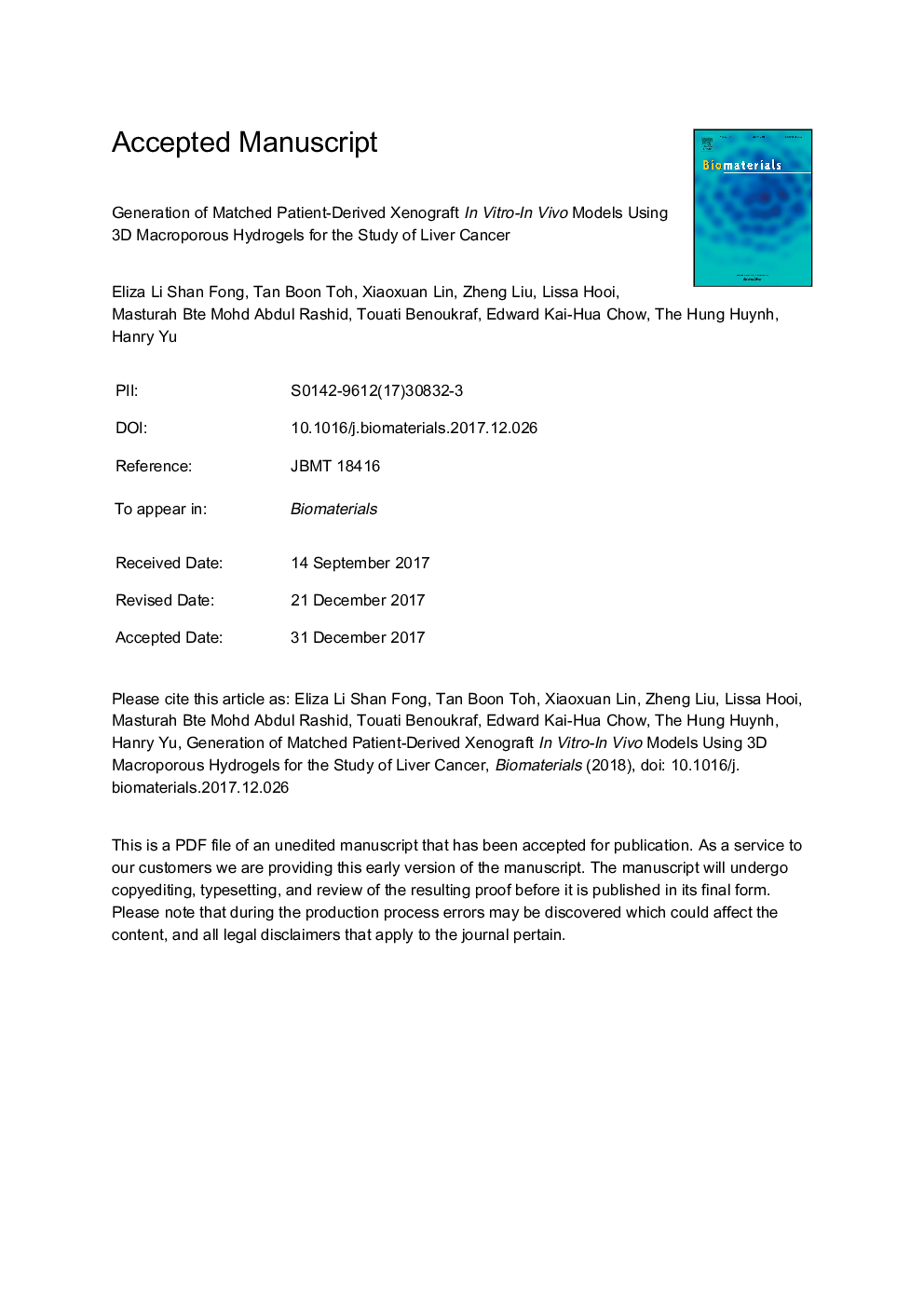| Article ID | Journal | Published Year | Pages | File Type |
|---|---|---|---|---|
| 6484674 | Biomaterials | 2018 | 26 Pages |
Abstract
Hepatocellular carcinoma (HCC) is the third leading cause of cancer death worldwide, often manifesting at the advanced stage when cure is no longer possible. The discrepancy between preclinical findings and clinical outcome in HCC is well-recognized. So far, sorafenib is the only targeted therapy approved as first-line therapy for patients with advanced HCC. There is an urgent need for improved preclinical models for the development of HCC-targeted therapies. Patient-derived xenograft (PDX) tumor models have been shown to closely recapitulate human tumor biology and predict patient drug response. However, the use of PDX models is currently limited by high costs and low throughput. In this study, we engineered in vitro conditions conducive for the culture of HCC-PDX organoids derived from a panel of 14 different HCC-PDX lines through the use of a three-dimensional macroporous cellulosic sponge system. To validate the in vitro HCC-PDX models, both in vivo and in vitro HCC-PDX models were subjected to whole exome sequencing and RNA-sequencing. Correlative studies indicate strong concordance in genomic and transcriptomic profiles as well as intra-tumoral heterogeneity between each matched in vitro-in vivo HCC-PDX pairs. Furthermore, we demonstrate the feasibility of using these in vitro HCC-PDX models for drug testing, paving the way for more efficient preclinical studies in HCC drug development.
Related Topics
Physical Sciences and Engineering
Chemical Engineering
Bioengineering
Authors
Eliza Li Shan Fong, Tan Boon Toh, Quy Xiao Xuan Lin, Zheng Liu, Lissa Hooi, Masturah Bte Mohd Abdul Rashid, Touati Benoukraf, Edward Kai-Hua Chow, The Hung Huynh, Hanry Yu,
